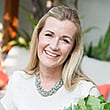Cost-effective organic food in the UAE is a reality
Can you get nutritious organic produce, without compromising on price and quality?

Highlights
- Organic food can cost you up to 50 per cent more than non-organic food.
- Organic food is often fresher and has a shorter shelf life because it doesn’t contain preservatives.
- Organic agriculture is a small industry, contributing to a mere two per cent of global food sales.
- Foods identified to be higher in pesticides are called the ‘Dirty Dozen’.
- The ‘Clean 15’ food items are conventionally grown items known to be low in pesticides.
Dubai: Take a look at your dinner plate – if the food is organic, it can cost you up to 50 per cent more than non-organic food.
That means you would have spent Dh150 instead of Dh100 at the grocery store for the seemingly same chicken, vegetables and rice. It looks the same and arguably even tastes the same.
So, is it worth it?
If better nutritional value is what you are looking for, there is no question, says Zenia Menon, a nutritionist at Dubai Herbal and Treatment Centre.
She said: “Organic food is often fresher and has a shorter shelf life because it doesn’t contain preservatives that make the food last longer. In conventional food, there are pesticide residues that remain in the food even after it is washed. Organic foods are produced virtually without pesticides. Grass-fed meat, vegetables, nuts, seeds, free-range eggs can also have about 50 per cent more omega-3 fatty acids – a type of unsaturated healthy fat – than conventionally produced products.”
Organic foods are produced virtually without pesticides.

Choosing organic is also considered one of the best ways to combat antibiotic resistance.
Worldwide, more than twice as many antibiotics are administered to livestock as they are to humans, according to a report by US-based nonprofit organisation The Organic Center.
While cooking meat at the proper temperature can kill antibiotic-resistant bacteria, consumers are still at risk due to their cooking preferences – for instance, if they choose a medium-rare steak – or through cross contamination of kitchen surfaces and cooking utensils.
Going organic directly reduces such risks.
Menon said: “On organic farms, the preventive use of antibiotics is restricted and animals are given more space to roam in natural conditions, which lowers their risk for infections, minimises antibiotic resistance and improves overall health. People who have food intolerances, gastrointestinal disorders (IBD) or allergies to foods, chemicals, or preservatives, often notice their symptoms lessen or go away when they eat only organic foods.”
Today, organic agriculture is still a small industry, contributing to a mere two per cent of global food sales, according to the Food and Agriculture Organisation of the United Nations (FAO).
What makes it so expensive?
What makes it so expensive, is the same thing that makes it more nutritious.
Becky Balderstone, founder of Ripe, a UAE-based enterprise that produces local, organic, farm-fresh produce, told Gulf News: “Organic food can be more expensive because of the farming process whereby due to not using any form of chemicals or growth hormones, it can take longer for produce to grow and generate smaller yields.”
Behind the price tag is also the assurance of environmental protection, higher standards for animal welfare, avoidance of health risks for farmers from improper handling of pesticides, and rural development.
Balderstone said: “Although you cannot put a price tag on your health, not only does organic food make you feel better, it supports the environment, too. We guarantee that our locally farmed products are fresh, meaning they will last a lot longer than other supermarket products, saving money in the long run, as you are able to reduce your food waste.”
Organic food can be more expensive because of the farming process whereby due to not using any form of chemicals or growth hormones, it can take longer for produce to grow and generate smaller yields.

The FAO predicts that as demand for organic food and products increases, technological innovations and economies of scale will help reduce costs. However, until that day comes, consumers are still feeling the pinch.
But there is a way to have it both ways — to get all the hormone-free nutrition you seek, while not having to create a dent in your wallet.
How to maintain a budget?
Nadia Bornman, dietitian, and Katharina Elbracht, dietitian and founder of Dubai-based health and wellness services provider Beyond Nutrition, told Gulf News: “It may be more cost-effective and still nutritionally sound to choose some products from the organic section and others from the regular conventionally grown section. Always aim to buy locally produced food, as these are often fresher. Also, wash fresh produce thoroughly; there are some fresh products that are higher in pesticides, as identified by the [US-based nonprofit organisation] Environmental Working Group (EWG).”
Foods identified to be higher in pesticides are called the ‘Dirty Dozen’. Even when you wash them, the pesticides are not completely removed — just reduced.
For this reason, nutritionists at Beyond Nutrition recommend buying organic versions of the ‘Dirty Dozen’ produce, and sticking with regular forms of other fruits and vegetables.
The ‘Clean 15’ food items are conventionally grown items known to be low in pesticides, and can be bought from the non-organic aisle at the grocery store.
Local produce
Another way to reduce costs is to buy local organic, instead of international organic produce. It is much more economical to buy food when it is in season and there is ample supply.
Bornman and Elbracht said: “A benefit of buying from local farms is that the produce is much fresher compared to the produce being imported. Many of these farms sell same-day harvested produce, which means they are at the peak of their freshness… The problem with organic international food is that it must be imported, which is pricey, and may decrease the levels of freshness when it reaches stores in the UAE.”
Out-of-season food may have been picked six weeks or more before you buy it, been ripened artificially and travelled great distances to get to your plate, according to Ripe’s website.
Balderstone said: “Eating local and organic is the best option. It massively supports your health and by buying locally farmed produce, you are also reducing your carbon footprint. Eliminating the need for produce to be imported via air or sea directly, supports the sustainability and climate change agenda, which is of high priority in both the UAE and international government policies.”
Dubai, in particular, is encouraging residents to embrace organic farming in their home gardens.
In September 2016, Dubai Municipality launched the ‘Grow Your Food’ campaign, which garnered enough interest from residents in the emirate to cultivate 300kg of over 50 varieties of fruits and vegetables within six months.
It is a change in lifestyle that is encouraging to see, especially for organic farmers.
Balderstone said: “There is more awareness around eating organic fruit and veggies – people are a lot more conscious about what they are putting in their bodies and the impact on the environment. They want fresh food that’s been farmed without pesticides, and for it to arrive on their plate with minimum travel time.”
As awareness increases, more parents are ensuring their children eat organic food, as well.
Menon said: “Children are most vulnerable to pesticide exposure because their immune systems, bodies, and brains are still developing. Parents should encourage their children to eat locally produced, seasonal foods. This ensures their diet gets ample nutrients and antioxidants, without the unhealthy pesticides that affect their gut health.”
With increased mindfulness among consumers about the need to choose healthy, sustainable food, and a rising demand for local produce, the cost of organic food is bound to become more affordable.
In 2004, the US Department of Agriculture (USDA) estimated that organic spinach cost 60 per cent more. Today, it’s down to 7 per cent.
Tomorrow, it might be just the right price for you to not even bother checking the price tag of its conventional alternative.
Balderstone said: “The development of the organic produce industry can be seen in the UAE, in how a number of restaurants and hotels are incorporating organic produce onto their menus. It’s an amazing thing to see, as it supports the local economy and farms even more so on a much bigger scale.”
How to identify organic food
By Falah Gulzar, Trainee Social Media Journalist
A product says ‘organic’. Fine? No, that might not be enough.
Organic Foods and Cafe CEO, Nils El Accad said that it’s easier to tell if a product is organic if it’s packaged. Shoppers should be looking for labels that signify whether the containers hold organic food.
American and European authorities such as the European Union, certify products that meet certain standards and such classification is what consumers need to be looking for, said Accad.
However, when it comes to unpackaged items, such as fruits and vegetables it’s quite difficult to identify organic from non-organic varieties.
It is a commonly believed myth that organic food can look smaller, less vibrant or show signs of rotting faster than their traditionally grown counterparts. However, “it depends on how the farmer farmed it and whether it is in season,” said Accad. “A traditionally grown fruit or vegetable can look identical to an organic one but would probably taste better.”
In such cases, one has to depend on the retailer and look for the organic food section at the store.
What is organic?
“In simple words: organic means something that is grown naturally, without any use of pesticides and chemicals,” said Accad.
Organic food includes fruits and vegetables or food that is made entirely from organic ingredients. Such crops must be grown using specific agricultural methods.
Although standards classifying organic methods of farming vary worldwide, the general agreement is that organic produce must be grown without the use of synthetic pesticides, bioengineered genes (GMOs), petroleum-based fertilizers, and sewage sludge-based fertilizers.



